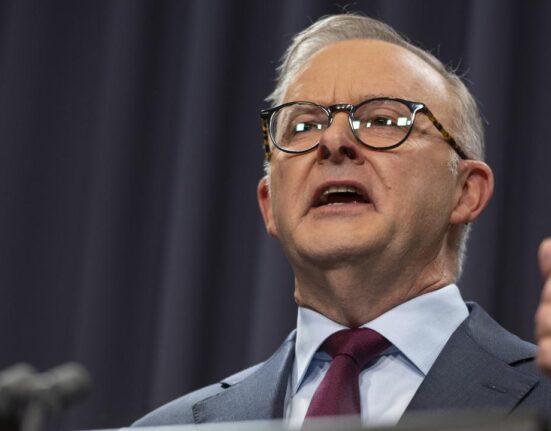As the world braces for what has been dubbed “Liberation Day 2.0,” the Reserve Bank of Australia (RBA) is contemplating a significant reduction in interest rates to shield the economy from the repercussions of US President Donald Trump’s escalating tariff disputes. This move aims not only to safeguard against economic fallout but also to stimulate consumer spending.
The independent Productivity Commission suggests that while Trump’s tariff policies may initially appear detrimental, they could inadvertently benefit countries like Australia if US manufacturers relocate to nations with lower tariffs. This potential shift could offer some positive outcomes amid the current economic uncertainties.
With financial markets and economists eagerly anticipating RBA Governor Michele Bullock’s announcement, speculations are rife about an imminent interest rate cut. Should this materialize, it would mark a historic moment, signaling the fastest back-to-back rate cuts since the onset of the COVID-19 pandemic.
The expected rate cut holds promising implications for homeowners, potentially translating into substantial monthly savings on mortgages. Against a backdrop of subdued inflation and lackluster economic growth, coupled with mounting concerns over Trump’s trade agenda, another rate reduction seems increasingly probable.
Despite a robust job market and sustained job creation figures, experts like Callam Pickering, Asia-Pacific chief economist at Indeed, stress the necessity for continued monetary support to bolster household spending and business investments. The prevailing economic climate calls for proactive measures to ensure stable growth and stave off recession risks.
While some economists advocate for a cautious approach by delaying rate cuts pending further economic indicators, others remain optimistic about the potential benefits arising from global trade realignments triggered by Trump’s tariffs. The looming updates on Trump’s tariff policies have injected an air of uncertainty into global markets.
The recent analysis by the Productivity Commission sheds light on both positive and negative aspects of these proposed tariffs. While there might be short-term gains in GDP due to reshoring activities away from high-tariff regions, long-term uncertainties pose challenges for businesses worldwide. The overarching concern remains centered on sustaining global economic stability amidst escalating trade tensions.
Amid diverging views within expert circles regarding the impact of tariffs on Australia’s economy, cautionary warnings are issued against retaliatory measures that could potentially escalate into a full-blown trade war with grave consequences globally. Upholding principles of free trade emerges as a crucial tenet in navigating through turbulent economic waters.
As policymakers navigate through complex economic landscapes characterized by geopolitical tensions and shifting trade dynamics, strategic decision-making becomes paramount in ensuring sustainable growth trajectories. The unfolding events surrounding Liberation Day 2.0 serve as a poignant reminder of interconnectedness in today’s globalized economy.









Leave feedback about this